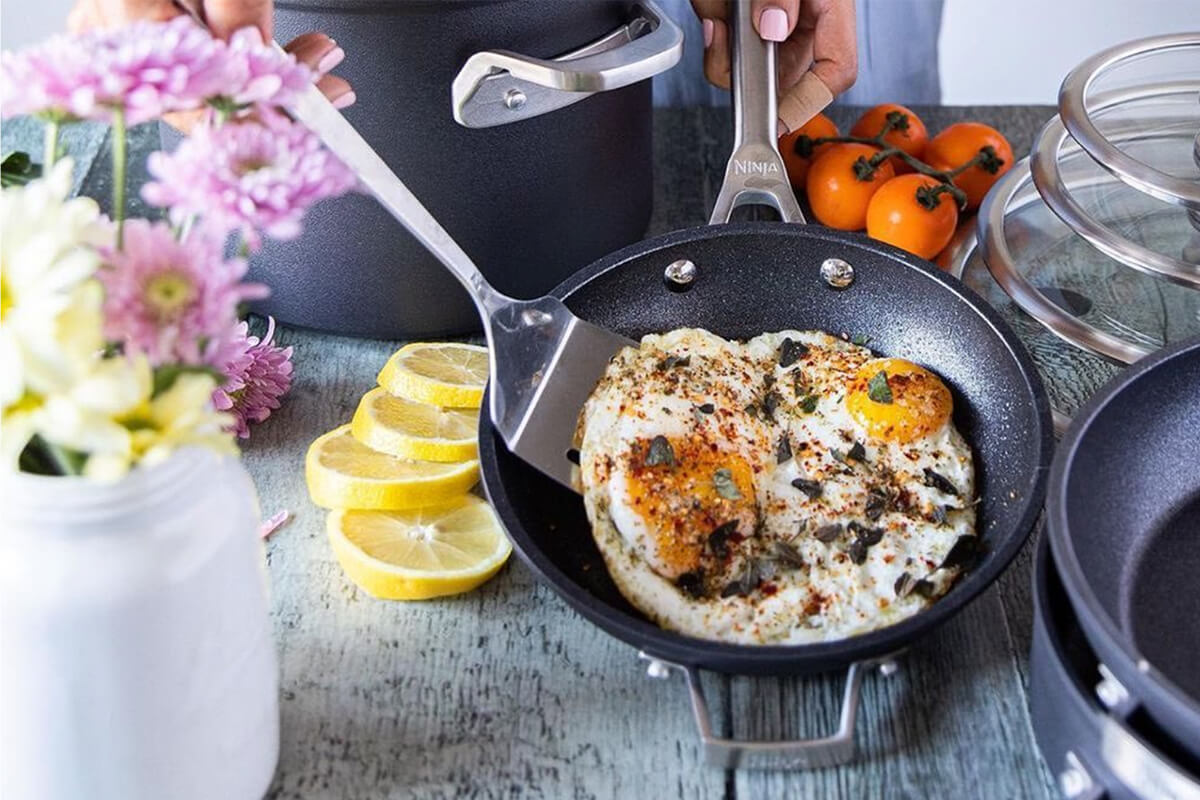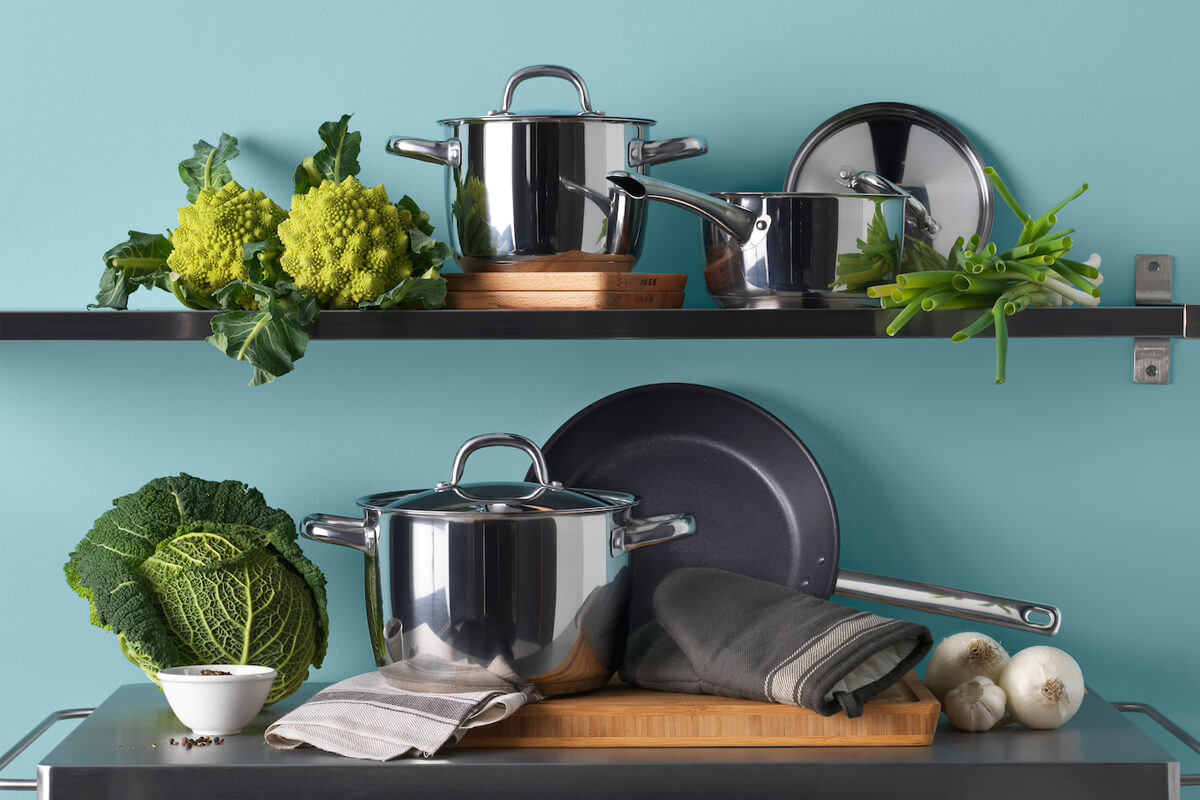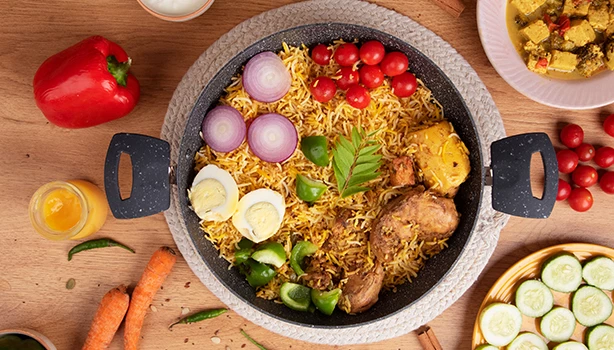Tips For Choosing Cookware For Healthy Cooking
 SDS admin
Date : 06/03/2023
SDS admin
Date : 06/03/2023

Avoid Non-Stick Cookware
Non-stick cookware is a popular choice for many home cooks, thanks to its convenience and ease of cleaning. However, most non-stick cookware contains a chemical called perfluorooctanoic acid (PFOA), which has been linked to various health problems, including cancer, thyroid disease, and developmental problems in children.
Instead of non-stick cookware, opt for stainless steel or cast iron. Stainless steel is a durable and long-lasting option that won't leach any harmful chemicals into your food. Cast iron, while heavy, is an excellent choice for cooking because it distributes heat evenly, and it also adds a small amount of iron to your meals, which can be beneficial for some people.
Choose Ceramic or Glass Cookware
Ceramic and glass cookware are both excellent options for healthy cooking. Unlike non-stick cookware, they don't contain any harmful chemicals that can leach into your food. They are also non-reactive, meaning they won't react with acidic ingredients like tomatoes and citrus, which can cause a metallic taste in your meals.
Ceramic cookware is a good choice if you want something that is lightweight and easy to clean. It's also a good conductor of heat, meaning it cooks food evenly. Glass cookware, on the other hand, is a good choice for baking and roasting. It's non-porous, so it won't absorb any flavors or odors from your food.
Look for Cookware with a Safe Coating
If you prefer non-stick cookware, look for options that have a safe coating. Many manufacturers are now producing non-stick cookware with a ceramic coating, which is free from PFOA and other harmful chemicals.
When looking for non-stick cookware, make sure to read the label carefully. Some manufacturers use marketing terms like "green" or "eco-friendly," which can be misleading. Instead, look for cookware that has been certified by independent organizations like the Green Good Housekeeping Seal or the Environmental Working Group's Healthy Living Seal.
Choose Cookware with a Tight-Fitting Lid
A tight-fitting lid is essential for healthy cooking. It helps to lock in the moisture and nutrients in your food, which can help prevent overcooking and nutrient loss. A tight-fitting lid also helps to reduce the amount of oil and fat needed when cooking.
When choosing cookware, select options with a lid that fits tightly. This will help to prevent steam and moisture from escaping, which can cause your food to dry out.
Opt for Thicker Cookware
Thicker cookware is better at conducting and retaining heat, so your food will cook more evenly. It also helps to prevent hot spots, which can cause your food to burn or cook unevenly. Thicker cookware is also less likely to warp or bend over time, making it a more durable option.
When shopping for cookware, look for options with a thick base and sides. This will help to ensure that your food cooks evenly and that your cookware will last for years to come.
Avoid Aluminum Cookware
Aluminum cookware is a popular option because it's lightweight and affordable. However, aluminum is a reactive metal, which means it can react with acidic ingredients like tomatoes and citrus, causing your food to taste metallic. Additionally, aluminum cookware can react with some types of food, like acidic or salty dishes, which can cause the metal to leach into your food.
Instead of aluminum cookware, opt for stainless steel, cast iron, or ceramic options. These materials are non-reactive and won't leach harmful chemicals into your food.
Check for Even Heat Distribution
Even heat distribution is crucial for healthy cooking. When your cookware distributes heat evenly, your food will cook more evenly, which helps to prevent burning and overcooking. It also ensures that your food is cooked to perfection, with the right amount of moisture and nutrients retained.
When choosing cookware, look for options that have a heavy and thick base. This will help to distribute heat evenly throughout the pan. You can also check the heat distribution of your cookware by placing a small amount of oil in the pan and heating it over medium heat. If the oil heats evenly and quickly, your cookware has good heat distribution.
Consider Your Cooking Style
Your cooking style and preferences should also be considered when choosing cookware for healthy cooking. If you prefer to cook with minimal oil, opt for non-stick or ceramic cookware. If you like to sear meats or cook at high temperatures, cast iron is a good choice because it can handle high heat.
Also, consider the types of meals you like to prepare. If you enjoy soups and stews, choose cookware with a large capacity and a tight-fitting lid. If you prefer baking, look for ceramic or glass options that can go from oven to table.
In conclusion, choosing the right cookware for healthy cooking is essential for preserving the nutrients in your food, avoiding harmful chemicals, and cooking with less oil and fat. When selecting cookware, opt for non-toxic, non-reactive, and durable materials like stainless steel, cast iron, ceramic, or glass. Look for options with a tight-fitting lid, even heat distribution, and a safe coating. Finally, consider your cooking style and preferences when making your selection. With these tips, you can make informed choices and enjoy delicious and nutritious meals for years.






